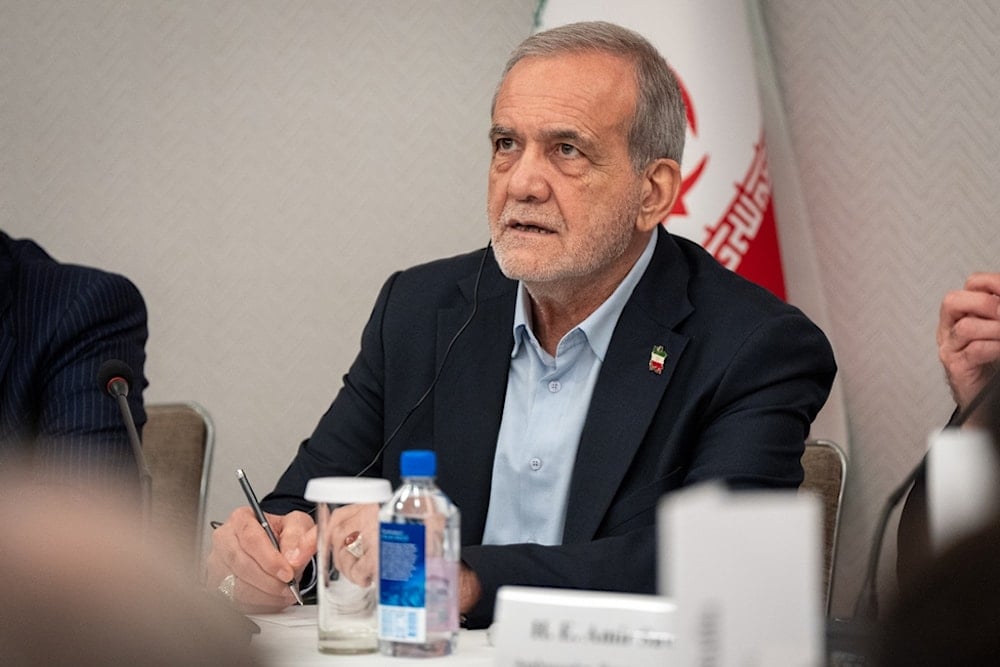Pezeshkian calls US stance on nuclear talks illogical, illegitimate
Iranian President Masoud Pezeshkian blasted the US stance on nuclear talks as “illogical,” citing pressure tactics and exposing Israeli crimes in Gaza.
-

Masoud Pezeshkian, the President of Iran, takes questions from the media at a press briefing in New York, Friday, September 26, 2025. (AP)
Iranian President Masoud Pezeshkian criticized the United States’ position on Tehran’s nuclear proposals, describing it as “illogical and illegitimate,” and said it reveals Washington’s unwillingness to resolve the issue through diplomacy and fair reasoning.
Speaking at a meeting of the Supreme Council of the Cultural Revolution, Pezeshkian said that US officials are seeking to reactivate the snapback mechanism, aimed at increasing pressure on the Iranian people and fueling domestic discontent.
The president stressed that unity among Iran’s institutions, prioritizing public welfare, energy management, and expanding trade with neighboring countries, would ultimately render these attempts ineffective.
Pezeshkian also pointed out that his recent visit to New York offered an opportunity to present Iran’s principled positions and to expose what he described as crimes committed by the Israeli regime against Palestinians in Gaza, amid the silence and incapacity of certain international bodies and governments.
Iran open to talks
Ali Larijani, the Secretary of Iran's Supreme National Security Council and senior political advisor to the Leader of the Islamic Republic of Iran, Sayyed Ali Khamenei, dismissed earlier in September as a "lie" the notion that his country refuses to negotiate, pointing out that Iran has held talks even while under military attack by "Israel" and the United States.
Larijani stated that Iran would accept any logical and fair proposal that safeguards its interests, revealing that two separate proposals had been put forward by the European and the Russian sides, both of which Iran accepted with some reservations, leading to the establishment of a six-month negotiation period.
However, he emphasized that the other parties, referring to the E3, failed to honor their commitments and proceeded to activate the snapback mechanism.

 3 Min Read
3 Min Read








